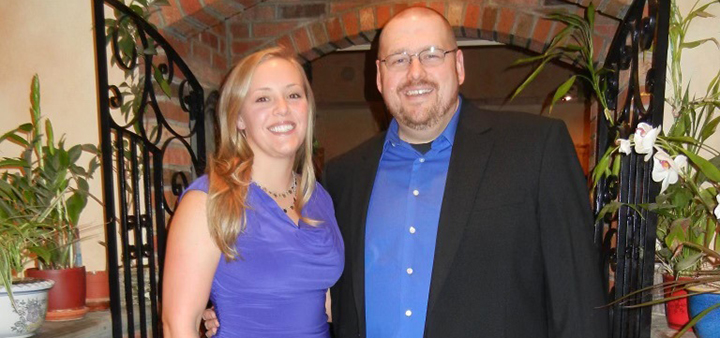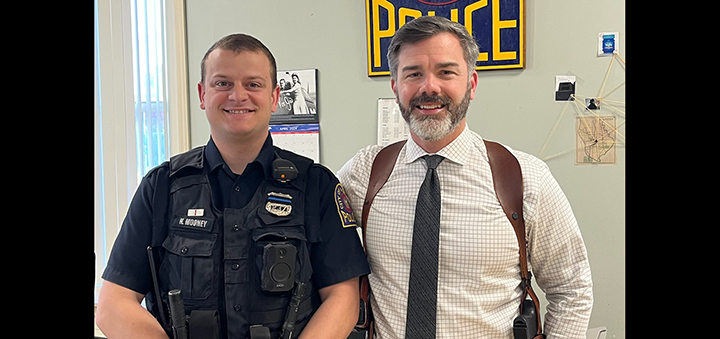The Happy Store – The Capitalist And The Carousel
Published:
October 2nd, 2020
By:
Shelly Reuben

Clementine finds that memory is a strong motivator in her 41st adventure at The Happy Store
The Happy Store sold classical, whimsical and/or decoratively useful things: an elegant centerpiece made of faux white orchids in a shallow onyx bowl … silk throw pillows embroidered with huge red hibiscus … ornate steel lanterns with metal trim as delicate as Nottingham lace. Lovely items, impractical enough to be considered capricious, yet somehow appropriate to our era and age.
Sometimes, however, The Happy Store’s buyers succumbed to the corporate equivalent of impulse shopping, and not only bought products that serve no useful purpose, they seemed to serve no impractical purpose as well. AND they were more expensive by half than 95% of the other specialty items in the store.
The one that precipitated this story had eluded Clementine Fraile from the time it arrived at the store until the moment when Sally Diamond, a long-time customer, pulled it off a floor-level shelf, placed it on a nearby table, and exclaimed, “Oh, Dear God of Fanciful Wishes, I have been looking for you my entire life!”
Sally was a physical therapist, as tall and slim as a fashion model, with sculpted features, a narrow face, and golden brown skin. Her amber eyes shone with delight as, staring fixedly at her cherished discovery, she called out, “Clementine, you have got to see this!”
The “this” was a musical merry-go-round, impossibly big – 20 inches wide by 18 inches high – and meticulously crafted. Sally craned her head over the top of the canopy to look behind. Not seeing what she was looking for, she probed with her fingers, found a switch, flicked it, and stood back to see what would happen. Immediately, twelve hand-painted galloping horses in jeweled saddles rose up and down on a revolving platform, and 115 mini-lights pulsed on and off to a tinkly rendition of “The Blue Danube Waltz.”
Sally’s hands flew to her mouth. “It’s exactly as I remember it!” She turned to Clementine. “The box! I’ve got to see the box!”
Clementine, as enthralled by the carousel as her customer, knelt beside the display area and began to explore the lowest shelf. “Nothing,” she said, standing up. “I’ll look in the cubby hole under the cash register.”
“Thanks!” Sally gushed. “I want to read the product description. May I use your computer?”
“Sure.” Clementine led her to the narrow table where it was located. She entered her employee I.D., clicked a few keys and said, “Write ‘carousel’ in the search box. If that doesn’t work, try ‘merry-go-round.’ I’ll be right back.”
Five minutes later, Clementine returned empty-handed, but Sally had found the carousel on the store’s website. She read aloud:
“This replica was created by Dulcimer Designs, a world-renown manufacturer of miniatures. Recently, they produced a table-top piano in honor of the Schopenhauer Piano company’s 150th anniversary. They have also created small scale models of the Eifel Tower in Paris, the Verrazano Narrows Bridge in Brooklyn, and Sir Walter Scott’s castle in Edinburgh.
“In honor of its restoration,” Sally continue aloud, “The City of Binghamton commissioned this marvelous, battery-operated miniature of the carousel built in 1925 by George F. Johnson in Recreation Park. The original has sixty horses, two Wurlitzer organs, two chariots, and a plethora of blazing lights.”
Clementine looked at the computer screen over Sally’s shoulder. “It costs $299.95, and I can’t give you a discount. But you have a Happy Store credit card, don’t you?”
“I do.”
“Good. If you use it today, you’ll get triple-points. So spend another five cents, and …”
At the same time and unbeknownst to both women, a handsome, craggy faced man with silver-hair and sky-blue eyes happened upon and became entranced by the carousel (he was later introduced as Phillip Hancock.) He carried it to the checkout counter and was about to purchase it himself when Sally turned away from the screen to reconnect with “her” carousel.
But … where was it? Had she put it on this table or that? Was it to her left or to her right? Where...? She frantically searched the showroom with her eyes. Finally, she observed a man standing at the checkout counter with his hand resting possessively on the object of her desire. She shouted, “Stop! That’s mine!”
What followed next was less an altercation than an exposition, for Sally took it upon herself to make the world stop spinning while she related, as she described it, “The story of my childhood.”
When she spoke, she held the rapt attention of the blue-eyed man, half-a dozen customers, Clementine Fraile, and, of course, Walter Graybill, the store manager, who had tuned in on the transaction the minute he heard Sally shout, “That’s mine!”
She began, “Some people are proud to have ancestors who came over on the Mayflower or invented a better mousetrap or discovered dinosaur bones. Not me. I am the proud descendant of a family who worked for a man who made shoes.”
Carmine Calabretta, Sally went on, was born in Italy. His father Bruno (Sally’s great grandfather), upon hearing about job opportunities Upstate New York, moved his family from Naples to Binghamton when Carmine was five-years-old. Bruno got a job at the Endicott-Johnson Shoe Company and stayed there his entire working life. So did Sally’s grandfather, Carmine. Sally’s father, Ralph Calabretta, worked at the company for two years in the late 1950s, but left to attend college, and eventually became a lawyer.
The founder of the Endicott-Johnson Shoe Company was George F. Johnson. He built his first factory in 1901, and at its peak, employed over 24,000 people. During World War II, it supplied the U.S. Military with all of its footwear and produced more than 52 million pairs of shoes a year.
When George F. Johnson was a child, he did not have the nickel he needed to ride a carousel, and he vowed that when he grew up, no other child would be put in the same position. In 1919, he built his first carousel. By 1934, one had multiplied to six, and the Tri-City area of Upstate New York (Johnson City, Endicott, and Binghamton) became the Carousel Capital of the World.
All six carousels are still open, and riding one – or all of them – once, twice, or all day, is still free.
“My grandfather used to tell me stories about working at Endicott-Johnson,” Sally went on. “He said the workers loved it so much, they built a stone arch over the entrance to Endicott proclaiming it ‘Home of the Square Deal.’ George F. Johnson expected two things from his employees. One: an honest day’s labor. Two: loyalty. In return he built them golf courses, ball fields, playground and swimming pools. All free. The children got free shoes. He built a hospital and provided free healthcare. He even started a finance company so employees who wanted to could afford to buy their own homes.
“Best of all, though,” Sally ended her oration, “were his carousels. Every summer until Grandpa Carmine died – he was 95 and I was 20 – he and I would ride them. Two in Endicott, one in Endwell, one in Johnson City, and two in Binghamton. My favorite,” she nodded toward the one on the counter, “was this … the carousel at the George F. Johnson Recreation Park in Binghamton.”
She turned toward her listeners. “Are any of you familiar with Rod Serling’s Twilight Zone television series from the 1950s?”
A chorus of voices responded, “I saw a few episodes on YouTube … It’s playing this month on Netflix … I’m old enough to remember watching the original.” And lastly, a young man with a receding hairline … “I studied the history of TV in college, and we watched all 156 episodes. Even the one about the carousel.”
Sally beamed at him.
“Exactly. That one was autobiographical, because Rod Serling came from Binghamton, and like me, grew up riding a carousel.” Sally motioned for everyone to move closer. “See here … here … and here.” She indicated miniscule paintings embedded around the carousel’s canopy. ”Each of these represents an episode from his series. This is Rod Serling as an adult revisiting his childhood self. This is the episode about a terrified passenger on an airplane. And this is the novelty vendor selling nightmares to a child.”
Sally stopped talking, but customers continued to study the small images. With a last few oohs and aahs, they eventually drifted back to shopping for tea pots, candlesticks, rocking chairs, and area rugs. Phillip Hancock, however, stayed right where he was. When he finally did move, it was only to push the carousel across the counter until it stopped directly in front of Sally.
He said, “It’s yours, young lady. By The Divine Right of Childhood Memories.”
Walter Graybill, meanwhile, had disappeared into the stockroom. A few minutes later, he reappeared carrying two carousel boxes. He handed the empty one to Sally. “For your carousel,” he said. He handed the heavy box to the man with blue eyes. “This is the last one. We’re not getting any more in.”
Phillip Hancock’s eyes widened with pleasure. “I sincerely thank you.” Then he turned to Sally Diamond. “I was going to give it to my daughter, but after hearing your story, I think I’ll keep it for myself.”
Walter went behind one cash register to ring up Phillip’s purchase. Clementine went behind the other to ring up Sally’s sale. Both customers exited the store at the same time. Walter followed them for a second with his eyes. Then he turned to walk away.
Clementine hurried after him. “Where were the boxes hiding, Boss? I looked and looked and looked, but I couldn’t find them anywhere.”
“Maybe you didn’t look hard enough.”
Clementine stamped a foot. “I can’t help it if I don’t have x-ray eyes.”
Walter shrugged, gave her one of his now-you-see-it-now-you-don’t smiles, and said, “And I can’t help it if I do.”
AUTHOR NOTE: Both George F. Johnson and the Endicott-Johnson Shoe Company existed in the real world, and were even better than I portrayed them. All six carousels are still operational, and riding them is still joyful and free. For those who are interested, the Internet is chock-full of information on this amazing man and his accomplishments. Happy research!
Copyright © Shelly Reuben, 2020. Shelly Reuben’s books have been nominated for Edgar, Prometheus, and Falcon awards. For more about her writing, visit www.shellyreuben.com
Author: Shelly Reuben - More From This Author
Comments





